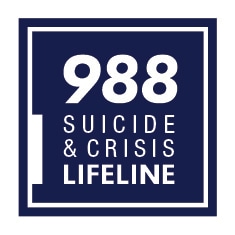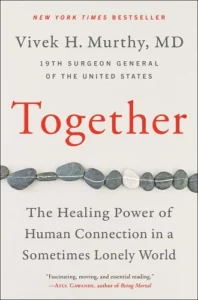The need for us to talk about suicide might seem off-focus for a blog called “Live(s) Inspiring Today”. But, the topic feels important. We are losing people of all ages to loneliness and disconnection, some with mental illness but many with no diagnosis. Alongside these stories of loss, these paragraphs celebrate people who inspire with their gift-giving, their clarity, and their appreciation for life.
Spiritual teacher Eric Triebelhorn lost his brother last year. He has also lost dear friends–one when still in high school. “If anyone mentions thoughts of taking their own life, I take it seriously. I ask questions. I check back,” he says.
It’s hard to know what another person needs or wants from us, but Lama Eric offers his simple commitment: We can listen. We can share our caring, our time, and we can express our love.
Yesterday I received a text from a contributor to the Portland Food Project.
“I’ll be out of town for the next pick-up,” Sarah wrote. “But my neighbor’s husband died, and she has two boxes of food to pass along. I’ll bring them by.”
Later that day, as we carried the hefty boxes onto my front porch I asked, “Was it sudden? Had he been ill for long?”
“It wasn’t a surprise,” Sarah said. “But still it was shocking.”
The man had posted sticky-notes all over the garage so his wife would call 911 rather than enter the house and find him.
“He was depressed for the past few years—and it got worse during Covid.”
Sharing our stories
So many of us are impacted by suicide: Sarah, like me, lost a close family friend to suicide as a child. My neighbor’s father took his life when she was a toddler. A colleague lost a niece who had gone away to college seemingly on top of the world.
A friend lost her husband after a few years of marriage. She knew he had been struggling, but he hadn’t talked of ending his life. For years after his death, his mother would call to ask my friend for answers, but she had none.
I write about suicide because it is all around us. Many of us carry stories, and stories can heal when shared.
Years ago I realized a lingering fear stuck in my body: When my husband seemed down or when he didn’t communicate much, I feared one evening I would come home from work and find him dead. This fear stemmed from my childhood loss—one we never talked about. Once I was able to realize and share these feelings and their origin, the dread dissolved. We can’t know who we touch when we share our lives.
Talking about suicide can prevent it
People who are contemplating suicide often make comments and attempt to ask for help in a round-about way, says Kate Rudigier, an acupuncturist practicing in Vancouver, Washington.
“When someone knows you care and are willing to talk directly about this serious topic, they might begin to think, ‘There’s another way.’” Be sensitive, but don’t shy away from asking direct questions is her advice.
Numerous studies and research show that asking someone about suicidal thoughts or feelings won’t push them into doing something destructive.
According to Dr. Vivek H. Murthy, former U.S. Surgeon General in his book Together, the majority of people who die of suicide have no prior diagnosis of mental illness. Feelings of loneliness and isolation lead people to feel despair, and he emphasizes how connection and community can sooth and lighten the pain.
Rates of death by suicide increased approximately 36% between 2000-2021, according to The Center for Disease Control and Prevention (CDC).
The suicide rate among males was approximately four times higher than the rate among females, and people 85 and older have the highest risk. And suicide is the second leading cause of death for young people between 10 and 24 (after accidents and homicide).
Watch this quick video from YouTuber and host of The Psych Show, Dr. Ali Mattu which advocates for breaking the silence and breaking through the stigma around suicide. He offers suggestions for anyone at risk and for all of us who might notice a friend or family member at risk.
“There’s no one-size-fits-all approach to helping a friend who’s thinking about suicide, but you can never go wrong by showing compassion and support,” writes Crystal Raypole, a writer committed to helping decrease stigma around mental health issues, in How to Help a Suicidal Friend: 11 Tips.
Questions to ask:
According to Mayo Clinic staff
How are you coping with what’s been happening in your life?
Do you ever feel like just giving up?
Are you thinking about dying?
Have you considered hurting yourself?
Are you thinking about suicide?
Have you ever thought about suicide before, or tried to harm yourself before?
Have you thought about how or when you’d do it?
Do you have access to weapons or things that can be used as weapons to harm yourself?
Notice these warning signs
It’s important to know the warning signs and be ready to act. Besides the 24/7 Suicide Hotline 988 and the online resources Lifeline (988lifeline.org) numerous organizations now offer trainings and free counsel.
If these warning signs apply to you or someone you know, get help as soon as possible, particularly if the behavior is new or has increased recently. According to the National Institute of Mental Health, notice these signs:
Talking about:
Wanting to die
Great guilt or shame
Being a burden to others
Feeling:
Empty, hopeless, trapped, or having no reason to live
Extremely sad, more anxious, agitated, or full of rage
Unbearable emotional or physical pain
Changing behavior, such as:
Making a plan or researching ways to die
Withdrawing from friends, saying goodbye, giving away important items, or making a will
Taking dangerous risks such as driving extremely fast
Displaying extreme mood swings
Eating or sleeping more or less
Using drugs or alcohol more often
The Oregon Health Authority (OHA) supports several training programs that teach individuals (and groups) to recognize someone at risk, intervene with confidence and competence, and refer them to the appropriate source to receive the help they need. This training map gives specifics (click on a logo for more information).
You can also look at the National Action Alliance for Suicide Prevention’s Faith Communities webpage. They have several resources through their Faith.Hope.Life Campaign and The National Weekend of Prayer for Faith, Hope and Life held each May.
We do the best we can
There is no right way of being—and we can never know what is going on inside of another human being.
In response to her husband’s death, the woman who donated those boxes of food has also collected her late-husband’s clothes. She is donating them to the Blanchet House, a place in downtown Portland where warm meals are served to those in need. It also houses men in recovery.
For now, this is her way of coping. We do the best we can.
To all those people who have not found a way out of their darkness, I’m sorry. I miss you.
And I also hold in my heart the survivors who sometimes wonder, “Was there something else I might have done?” I invite you to let that question fade.
Of course, there is always something else we could have done, but we can never force things to turn out as we wish they would. We take what we’ve learned, and we try our best to make it useful in the world.
We can hold each other close and listen now–and leave our cell phones out of sight.
To all of us, may we feel loved and be happy. May we grow more at ease as our lives morph in unexpected ways. May we be there for each other as best we can.
More Links You Might Like:
How to Help a Suicidal Friend: 11 Tips (healthline.com)-a clear, simple guide
Signs That Someone Is Contemplating Suicide | Psychology Today-A guide for noticing warning sign in oneself as well as in others with a list of articles referenced.
Suicide: What to do when someone is suicidal – Mayo Clinic-This resource offers specifics: questions to ask, warning signs, how to offer support, and several short videos on “Preventing Teen Suicide”
Together, by Vivak H. Murthy, former US Surgeon General. Murthy’s prescient message is about the importance of human connection, the hidden impact of loneliness on our health, and the social power of community.
7 Ways We Can Do Better by Suicide Attempt Survivors (healthline.com)-The author writes as a member of a group of people often left out of the conversation and support–those who have attempted to die but survived.
Suicide and language: Why we shouldn’t use the ‘C’ word | APS (psychology.org.au)-Important article on why the word “commit” should not be used when talking about suicide.



